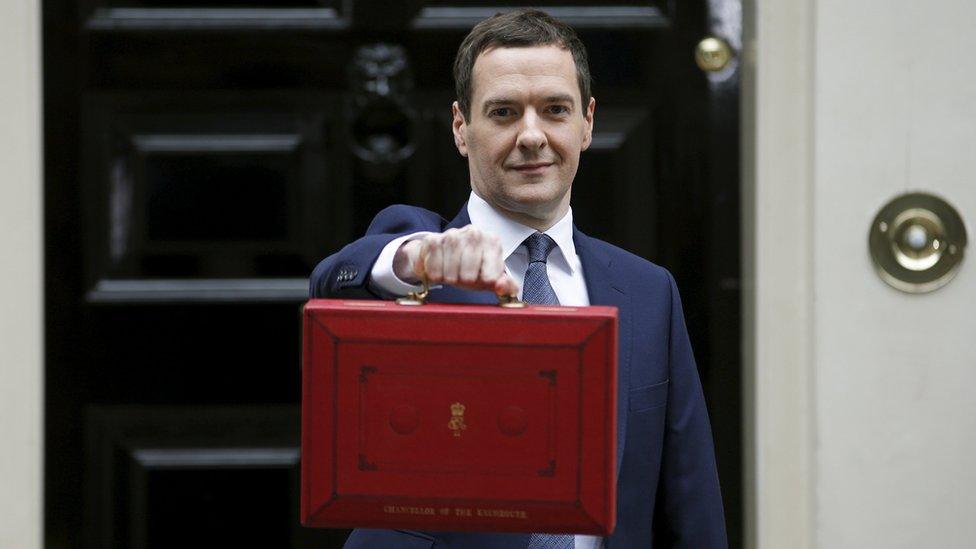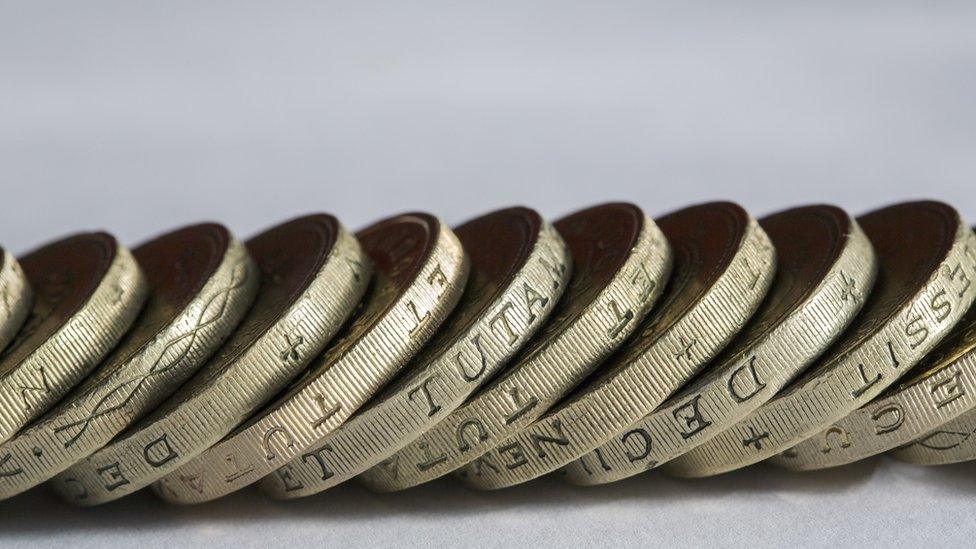Budget 2016: No more 'easy choices' for Osborne
- Published
Lord Kerslake says Budget cuts will be 'uphill task'
Year after year, Budget after Budget, George Osborne has stood at the despatch box and promised to balance the books.
Indeed, closing the gap between what the government spends and what it takes in taxes was the government's main mission.
But it has proved harder than Mr Osborne had hoped. He would blame circumstances beyond his control which - again - threaten to push his targets further back.
'Substantial changes'
His critics on one side would say the initial pace of the cuts are what dragged the recovery down - a self-defeating object.
Critics on the right would say in fact he's lacked the courage to go far enough.
In the febrile atmosphere less than 48 hours before a Budget, there is agreement on one thing - whether fast or slow, the most straightforward cuts, practically and politically, have gone.

Former head of the Home Civil Service Lord Kerslake, who was until recently one of the most senior officials involved in the hunt for savings, says clearly: "It's hard to see where the easy choices are now."
He told me: "The savings that have to be found will require very substantial changes in the way things are delivered - or, indeed, the offer made."
In other words, public services will have to be delivered much more cheaply, or the public will have to accept very different levels of provision.
Welfare squeeze
And with Mr Osborne significantly behind on his own original targets from 2010, by accident or design, Lord Kerslake told me: "We've still got some way to go, no more than half on the numbers.
"The important thing to say is that the second half is much harder because the sense of crisis that drove the savings in the coalition government has ebbed, the wider economy is growing so people can't see a comparable position there and people just get exhausted by the process.
"The easy savings have been done. So where do you go?"
Well, the chancellor is likely to announce further squeezes on welfare spending - the government has already outlined taking another billion out of the budget allocated to disabled people.
There are likely, by 2020, to be cuts of an extra £4bn a year by 2020. To raise revenue, there could possibly be a rise in fuel tax - politically difficult but lucrative for the government coffers - maybe hikes in insurance premiums, and what one Tory MP described as "nibbles here and there".
With the European referendum bearing down on Numbers 10 and 11 there is a desire not to stir up too much controversy, not to distract too much from their main task in hand.
But as Lord Kerslake warns, taking anything else out of government budgets that have already been slimmed down is tricky - a task almost bound to cause complaint in itself.
- Published14 March 2016
